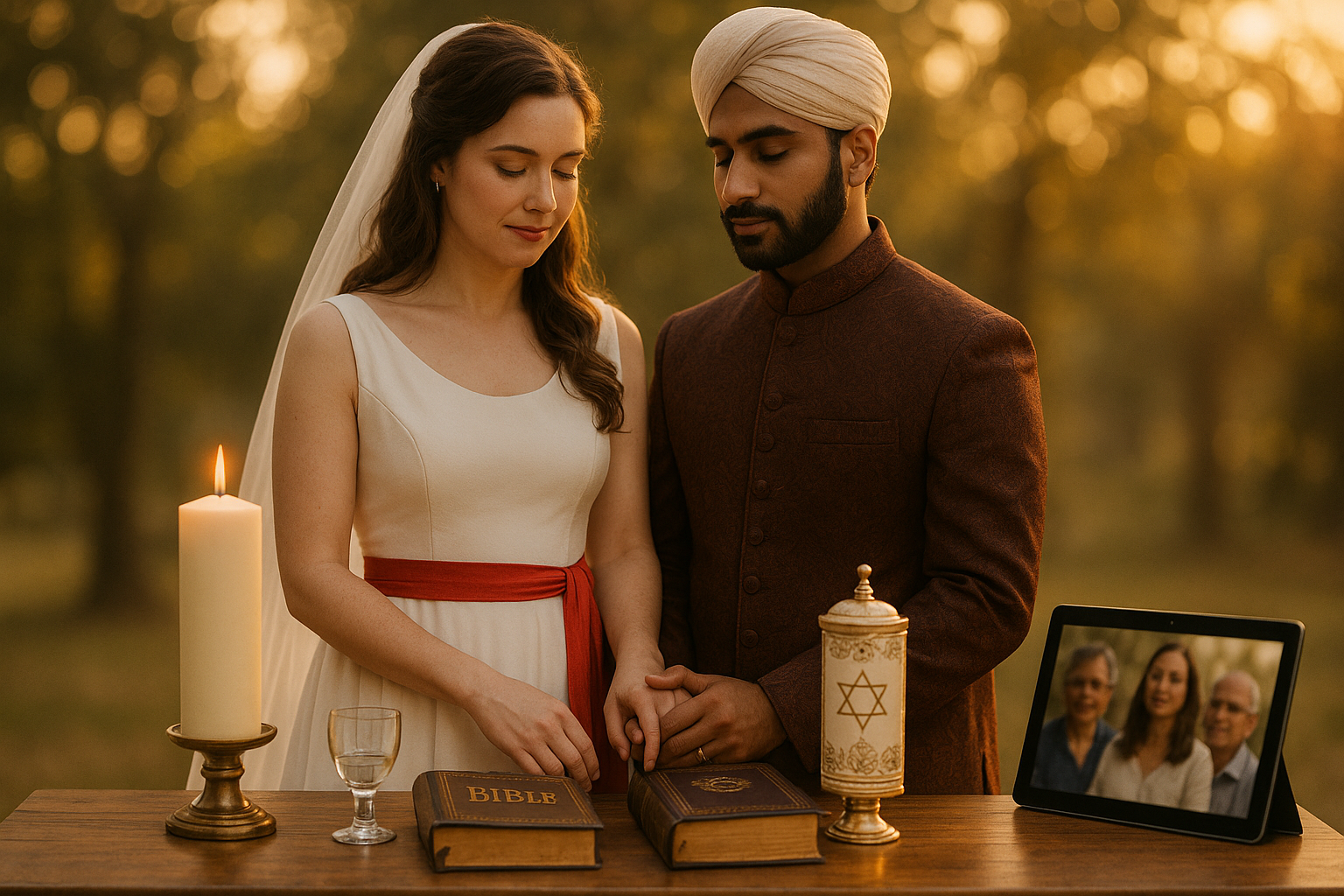Planning a wedding is a joyous journey, and when it involves blending traditions from different faiths, it becomes a beautiful tapestry of love and culture. With the rise of virtual weddings, couples now have the unique opportunity to honor their diverse backgrounds in innovative ways. Let’s explore how to create a meaningful interfaith virtual wedding that celebrates both partners’ traditions.
Understanding the Essence of Interfaith Virtual Weddings
An interfaith virtual wedding combines elements from two or more religious traditions into a single, cohesive ceremony conducted online. This approach allows couples to honor their individual beliefs while uniting in marriage, all within a virtual setting.
Choosing the Right Online Minister
Selecting an officiant experienced in interfaith ceremonies is crucial. Many online ministers are well-versed in conducting faith-based rituals and can guide you in incorporating readings, blessings, or prayers specific to your traditions. This ensures your virtual wedding is both legally binding and spiritually fulfilling. For more insights, consider reading our article on how couples add religious rituals to online weddings.
Incorporating Diverse Rituals in a Virtual Setting
Virtual platforms like Zoom offer creative ways to include various religious customs:
- Unity Ceremonies: Perform rituals such as lighting a unity candle or breaking the glass, with participants joining from their respective locations.
- Readings and Prayers: Invite family members to share readings or prayers from their faiths, fostering inclusivity.
- Music and Dance: Integrate traditional music or dances, allowing guests to participate remotely.
Coordinating Traditions with Family and Friends Online
Engaging your loved ones in the ceremony enhances the experience. Utilize breakout rooms for pre-ceremony gatherings where guests can share blessings or perform rituals. Sending symbolic items ahead of time enables everyone to participate actively, making the virtual wedding feel intimate and connected.
Addressing Language and Cultural Nuances
For international couples or those with bilingual families, providing translations ensures everyone understands and appreciates the ceremony. Sharing the order of service or prayers in multiple languages, or using live translation features, can bridge language gaps effectively.
Legal Considerations and Documentation
Ensuring your virtual marriage is legally recognized involves understanding the requirements for marriage licenses and certificates. Some couples may need an apostille for international recognition. Our apostille service can assist in this process.
Pre-Marital Counseling and Blessings Online
Many faiths encourage pre-marital counseling or blessings. Scheduling these sessions online with a spiritual leader can provide guidance and strengthen your bond before the wedding day.
Personalizing Your Ceremony
Work with your officiant to create a ceremony that reflects both traditions authentically. This might include:
- Combining traditional vows from each culture.
- Incorporating symbols and motifs significant to both backgrounds.
- Featuring traditional attire or accessories from each culture.
FAQs
- Is an online wedding recognized by all religious communities?
Recognition varies among religious groups. It’s essential to consult with your faith leaders to ensure the virtual ceremony aligns with religious requirements. - Can we include sacraments or rituals during a virtual wedding?
Many rituals can be adapted for virtual settings. Discuss with your officiant how to modify these practices appropriately. - How can remote guests participate in our interfaith virtual wedding?
Encourage guests to join in readings, prayers, or symbolic acts from their locations, fostering a communal atmosphere. - What if our families speak different languages?
Provide translations of the ceremony script and consider using live translation features to ensure inclusivity. - How do we handle legal documentation for an online interfaith wedding?
Ensure you meet all legal requirements for marriage licenses and consider obtaining an apostille for international recognition. Our apostille service can assist you.
Embracing the digital age allows couples to celebrate their love without boundaries. By thoughtfully blending traditions and utilizing virtual platforms, your interfaith virtual wedding can be a heartfelt and memorable event. For more information or assistance in planning your ceremony, feel free to contact us.




